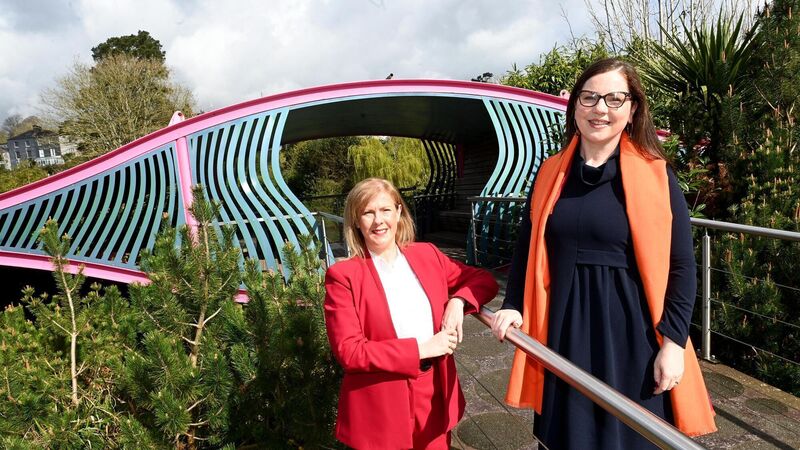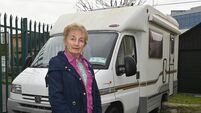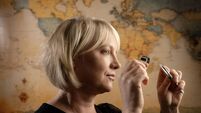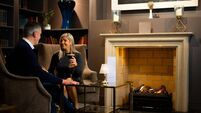Cork funeral planners: ‘I think services like ours will be the norm in a decade’s time.’

RHEA was founded by Dara O'Shea and Louise O’Brien who previously worked together at the events department at UCC. Picture: Larry Cummins
When Dara O’Shea’s father passed away five years ago, she turned to her friend and former colleague Louise O’Brien for help with planning the funeral.
“I come from a very small family, so the natural thing was, everything was falling to me to make all of the plans,” says Dara.
“Louise was the person saying, let me help you.”
Dara and Louise previously worked together in the events department at University College Cork.
In the days before the funeral, they entered planning mode, and went through the checklist of jobs that needed to be done.
“We realised that there is a huge need for a support and a service to help guide families over the difficult days of a funeral,” says Dara.
That’s where the idea for their business RHEA Family Funeral Care began.
The pair were surprised that a funeral planning service didn’t already exist in Ireland.
A lot of time and effort goes into planning celebrations for other life events, but grieving families have to organise funerals in just a few days.
“We’re trying to do a number of events in a very tiny time frame when we’re least able to do it, emotionally and mentally,” says Dara.
RHEA supports families with all aspects of funeral planning, from organising the reception to choosing music. As funeral organisers, Dara and Louise take the hard work off the shoulders of grieving families.
“We are focused, clear and empathetic, but it’s not our pain. So we’re not going in with the exhaustion, the stress, the devastation that they’re going through, we’re turning up with a head full of ideas and a bag full of solutions to things,” says Louise.
“It allows them to not be stuck in the rut of ringing around all the different hotels or restaurants trying to get a reception, having those conversations back and forth with musicians, a lot of the logistical stuff.”
Hiring professionals allows families to be there for each other while the work of organising the funeral is being done.
“A family who are grieving or planning a funeral should be able to wrap their arms around their children, their grandchildren, and just come to terms with what’s happening, while we as professionals are getting the work done,” says Dara.
As part of their service, RHEA offers civil funeral ceremonies.
Louise is a qualified funeral celebrant, which involves conducting, writing and delivering the funeral ceremony outside of a church setting.
Her interest in this type of work began while working in UCC.
“One of the things that we were responsible for in the job was the posthumous conferrings for students who had passed away before their degree was awarded,” she says.
She acted as the point of contact for the family of the deceased student, and ensured they were looked after, had a parking space, reserved seats, and somewhere quiet to go for a coffee.
“It was, hands down my favourite part of my job,” she says.
As a celebrant, she supports families at the moment of saying goodbye to their loved one.
“There is just nothing like the feeling of knowing that you can be of service to a family and watch them in the crematorium; it’s a very poignant moment,” she says.
“Just to hold them and walk through that moment with them. It’s all designed and every ceremony is written with them.”
As well as working with grieving families, Dara and Louise help older people who are thinking ahead to their own arrangements.
“It’s very life-affirming for them, because we’re all going to reach a point where we kind of know that this is something we should do, and none of us want to do it,” says Louise.
“We’ve gotten fabulous feedback from a couple of clients in the pre-planning stage where they were like: ‘This was on our minds, and we feel 10 years younger, having done it’.”
The pair predict funerals will continue to become more personalised and diverse in the future.
“The funeral industry is changing, and it’s going to continue changing over the next few years,” says Louise.
“I think services like ours will be the norm in a decade’s time. If you told people in the 1980s that they’d have private chefs coming into cater their child’s Holy Communion, they would laugh at you, but that’s the norm now.”
No-one looks forward to a funeral, but the women say their guiding belief is that grieving families should be able to look back on it and feel a sense of closure and peace.
“Initially, we were talking to a lot of people who were saying, ‘oh, I remember this went wrong at mom’s funeral’,” says Dara.
“We want to be able to have a family just look back and say, ‘We did our best. They would have been so proud, it’s what they would have wanted’.”
See www.rhea.ie







 App?
App?


